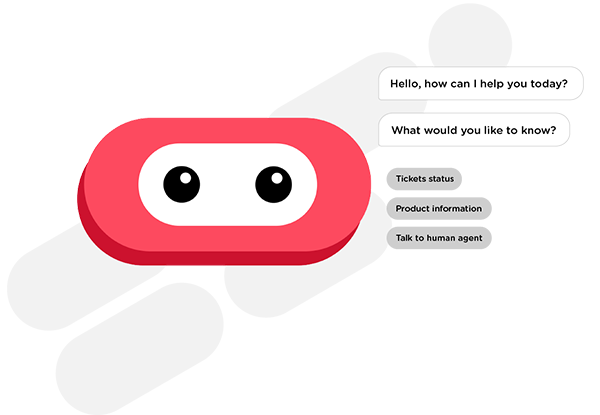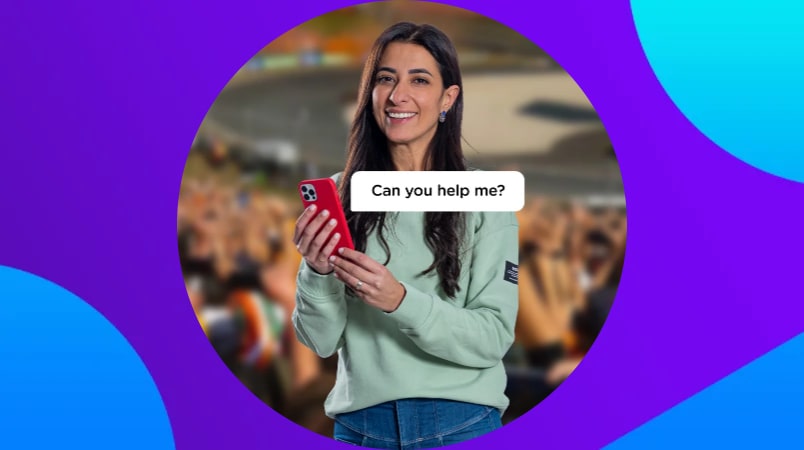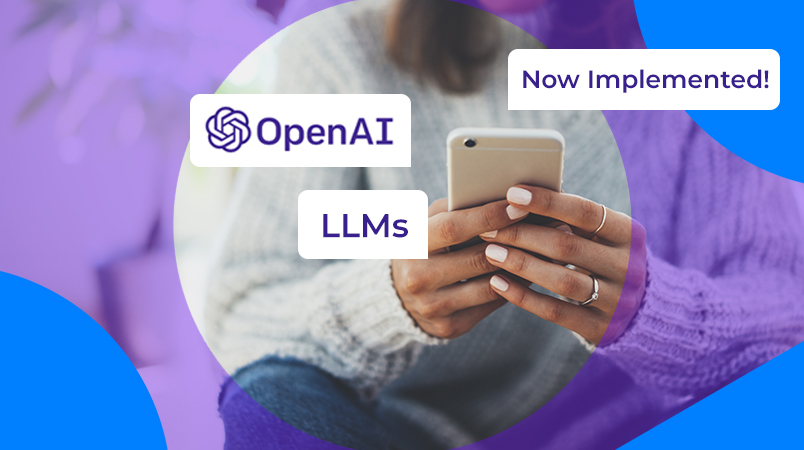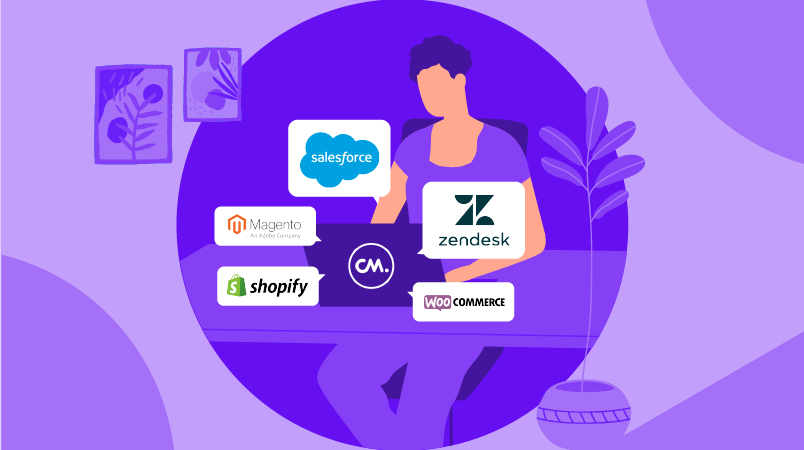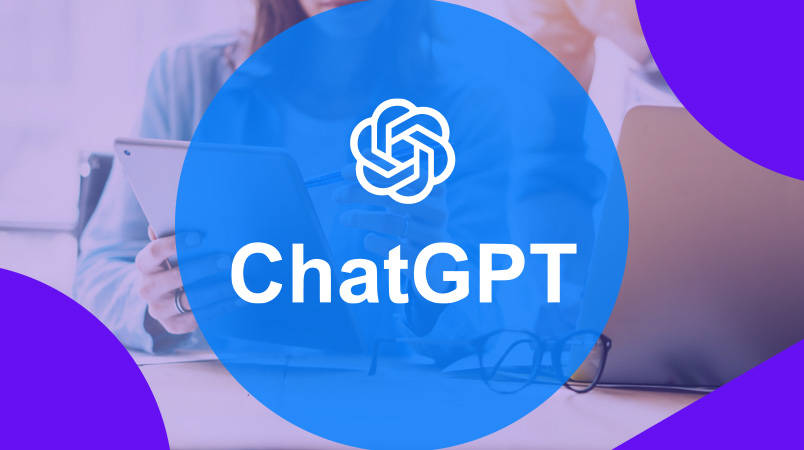Artificial Intelligence, or AI, is one of the most talked about technologies of the modern era. The potential for artificial intelligence to create labour-saving workarounds is near-endless and, as such, AI has become a buzzword for those looking to increase efficiencies in their work and to automate elements of their jobs.
Natural Language Processing (NLP), and it’s close relatives Natural Language Understanding (NLU) and Natural Language Generation (NLG), are subsets of AI that are specifically concerned with understanding human linguistic behaviour and the nuances of language that can lead machines to fully understand the needs of their human operators.
Here’s a quick overview of the differences between NLP, NLU, and NLG.
What is NLP or Natural Language Processing?
Natural Language Processing, or NLP, involves the processing of human language by a computer program to determine what its meaning is.
Natural Language Processing is at the core of all conversational AI platforms. In conversational AI interactions, a machine must deduce meaning from a line of text by converting it into a data form it can understand. This allows it to select an appropriate response based on keywords it detects within the text. Other Natural Language Processing tasks include text translation, sentiment analysis and speech recognition.
NLP generally uses one of two approaches: a rule-based approach or an AI-based approach.
Rule-based approach
Using a set of linguistic guidelines coded into the platform that use human grammatical structures. However, this approach requires the formulation of rules by a skilled linguist and must be kept-up-to-date as issues are uncovered. This can be a drain on resource in some circumstances, and the rule book can quickly become very complex, with rules that can sometimes contradict each other.
AI-based approach
This is an algorithmic approach that uses statistical analysis of ‘training’ documents to establish rules and build its knowledge base. However, because language and grammar rules can be complex and contradictory, without human oversight and correction, this algorithmic approach can sometimes produce incorrect results.
Given that the pros and cons of rule-based and AI-based approaches are largely complementary, CM.com’s unique method combines both approaches. This allows us to find the best way to engage with users on a case-by-case basis.
What is NLU or Natural Language Understanding?
Natural Language Understanding, or NLU, is a subset of NLP. NLU is concerned with understanding the text so that it can be processed later. NLU is specifically scoped to understanding text by extracting meaning from it in a machine-readable way for future processing. NLP is about more than just understanding the text however. Because NLU encapsulates processing of the text alongside understanding it, NLU is a discipline within NLP.. NLU enables human-computer interaction in the sense that as well as being able to convert the human input into a form the computer can understand, the computer is now able to understand the intent of the query. Once the intent is understood, NLU allows the computer to formulate a coherent response to the human input.
In the context of a conversational AI platform, if a user were to input the phrase ‘I want to buy an iPhone,’ the system would be able to understand that their intent is to make a purchase and that the entity they wish to purchase is an iPhone. This allows the system to provide a structured, relevant response based on the intents and entities provided in the query. That might involve sending the user directly to a product page, or initiating a set of production option pages before sending a direct link to purchase the item.
NLU is particularly effective with homonyms – words that are spelled the same but that have different meanings, such as ‘bank’ – meaning a financial institution – and ‘bank’ – meaning a river bank for example. Human speech is complex, so the ability to interpret context from a string of words is hugely important.
Natural Language Understanding is a vital part of the NLP process, which allows a conversational AI platform to extract intent from human input and formulate a response, whether that’s from a scripted range, or an AI-driven process.
What is NLG or Natural Language Generation?
Natural Language Generation, or NLG, takes the data it has collated from a human interaction and creates a response that can be understood by a human. Natural Language Generation is, by its nature, extremely complex and requires a multi-layer approach to process data into a response that a human will understand. Once the input has been processed, the data goes through a number of stages before the software formulates a response; including using sentence aggregation to accurately summarise the topic, and grammatical structuring to ensure the response can be understood effectively and sounds like it was created by a human rather than a machine.
NLG is a complex subject. Getting consistently high-quality responses to user queries is a challenge, but NLG has huge potential to revolutionise areas such as customer service, where huge amounts of time responding and structuring data to often repetitive queries. NLG is also being used to create templated content for a number of news outlets: data-driven report writing for example, where figures change but the structure remains fairly consistent. NLG is also a focus of much of our current research.
NLP, AI, And Machine Learning: Complimentary technologies
Language processing is a hugely significant technology in its own right, but it can also enhance a number of existing technologies, often without a full ‘rip and replace’ of legacy systems.
Interactive Voice Response (IVR)
Interactive Voice Response technology will be familiar to many of us. It allows callers to interact with an automated assistant without the need to speak to a human and resolve issues via a series of predetermined automated questions and responses.
Natural Language Processing allows an IVR solution to understand callers, detect emotion and identify keywords in order to fully capture their intent and respond accordingly. Ultimately, the goal is to allow the Interactive Voice Response system to handle more queries, and deal with them more effectively with the minimum of human interaction to reduce handling times.
 With NLP integrated into an IVR, it becomes a voicebot solution as opposed to a strict, scripted IVR solution. Voicebots allow direct, contextual interaction with the computer software via NLP technology, allowing the Voicebot to understand and respond with a relevant answer to a non-scripted question.
With NLP integrated into an IVR, it becomes a voicebot solution as opposed to a strict, scripted IVR solution. Voicebots allow direct, contextual interaction with the computer software via NLP technology, allowing the Voicebot to understand and respond with a relevant answer to a non-scripted question.
Robotic Process Automation (RPA)
Robotic Process Automation, also known as RPA, is a method whereby technology takes on repetitive, rules-based data processing that may traditionally have been done by a human operator. Both Conversational AI and RPA automate previous manual processes but in a markedly different way. Increasingly, however, RPA is being referred to as IPA, or Intelligent Process Automation, using AI technology to understand and take on increasingly complex tasks.
How does conversational AI work?
Conversational AI employs natural language understanding, machine learning, and natural language processing to engage in customer conversations. Natural language understanding helps decipher the meaning of users’ words (even with their quirks and mistakes!) and remembers what has been said to maintain context and continuity.
Once a customer’s intent is understood, machine learning determines an appropriate response. This response is converted into understandable human language using natural language generation.
NLP processes flow through a continuous feedback loop with machine learning to improve the computer’s artificial intelligence algorithms. Rather than relying on keyword-sensitive scripts, NLU creates unique responses based on previous interactions.
Get started with conversational AI
If you want to know more about Natural Language Processing, Understanding, and Generation, and its potential to create efficiencies in your business, get in touch and we can discuss how our technology can help you to fast track your digital transformation.

